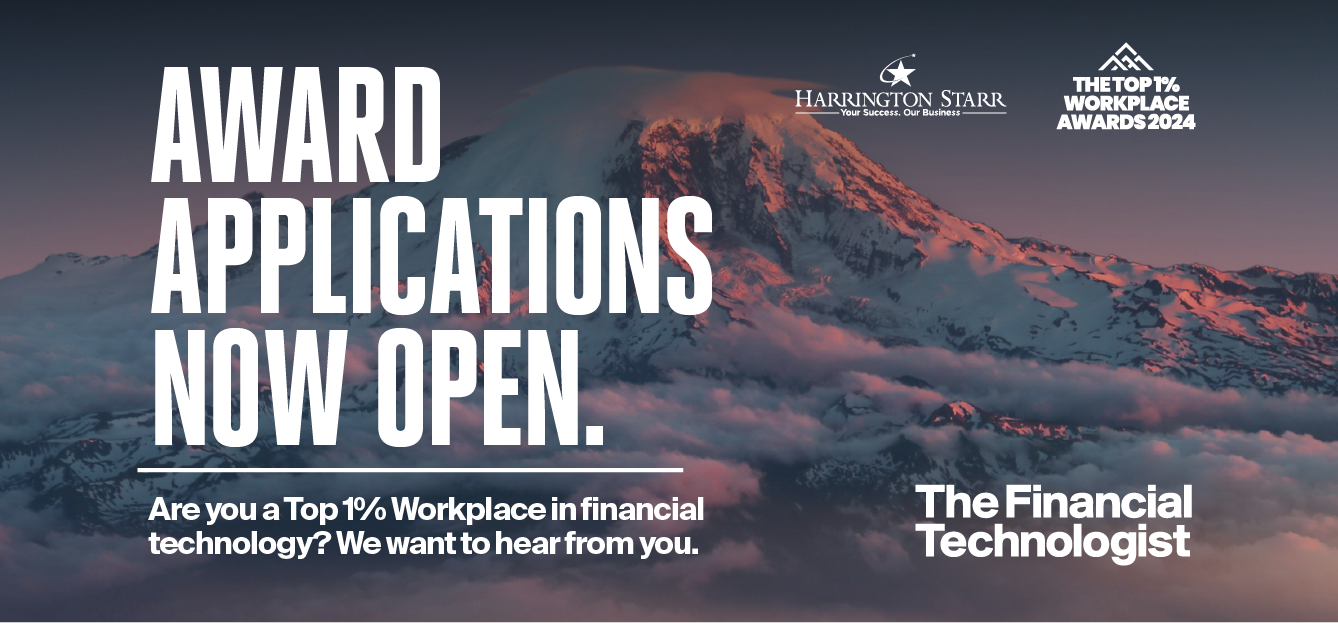
As fintech trends grow, contracting opportunities are as promising as ever. From the rise of decentralised finance to the introduction of blockchain technology, fintech continues to reshape how we transact and manage our finances. As new fintech technology is continuously introduced and industry growth proliferates, there is an increased demand for contract professionals to drive innovation on a flexible basis.
Contractor opportunities in the fintech industry are growing due to the demand for specialised skills, flexibility in workforce management, and the importance of expertise in areas like decentralised finance and cybersecurity. As fintech companies strive to drive innovation within the industry, contractors provide the necessary expertise and agility to meet these challenges effectively.
In this guide, we will explore the current fintech trends, key areas of growth, and the emerging contractor opportunities of 2024.
Decentralised Finance (DeFi)
Decentralised finance stands out as one of the major trends in fintech reshaping the financial industry. Through the use of blockchain technology and smart contracts, DeFi platforms offer a decentralised alternative to traditional banking and financial services. This innovative approach allows global individuals to access a wide range of financial tools without the need for intermediaries like banks.
The global FinTech Blockchain market, estimated at US $1.1 Bn in 2021, is expected to reach US$8.7 Billion by 2030, expanding at a CAGR of 43.8%. This figure demonstrates the rapid adoption of blockchain technology and its importance in decentralised finance, positioning it as one of the predominant fintech trends within the industry.
- Enhanced security - Blockchain technology offers a transparent and secure record of transactions, which significantly decreases the risk of fraud and tampering. A secure, transparent record of transactions improves audit traceability, allowing users more control over financial data.
- Increased accessibility - By utilising blockchain technology, anyone with an internet connection can participate in financial activities such as borrowing, lending, and investing, and it can potentially offer greater inclusion for the underbanked population, which has limited access to traditional banking services.
- Improved efficiency - Decentralised finance streamlines financial processes, allowing for faster transactions and potentially lower fees compared to traditional finance. Smart contracts are used for automation to execute agreements using pre-programmed conditions, reducing the need for banks to process transactions manually.
Contracting opportunities
With the continued rise of DeFi, there's a growing demand for contractors skilled in blockchain development, smart contract auditing, and cybersecurity. These professionals help build and secure decentralised platforms, ensuring reliable financial transactions.
Here are some of the main contractor jobs and opportunities in decentralised finance:
- Blockchain security specialists - Contract blockchain security specialists are essential in implementing secure cyber security measures to protect decentralised finance protocols and mitigate security threats.
- Smart contract auditors - Contract professionals in smart contract auditing are required to detect and address weaknesses in decentralised contracts and safeguard user funds.
- Smart contract developers - Smart contract developers are in huge demand and are required to design, build and test smart contracts that drive DeFi applications such as lending platforms.
- Blockchain developers - Blockchain developer contract workers construct pathways and entry points to link various decentralised finance blockchains to enable broader functionality.
AI and Machine Learning (ML) Integration
AI and machine learning are some of the most essential trends in fintech, making financial services smarter, faster and safer. Here are the key ways in which AI and machine learning are revolutionising the fintech sector:
- Personalised financial products - AI is implemented to personalise financial products by analysing data to understand individual preferences and behaviours. Machine learning predicts needs, offers personalised insights and creates chatbots to deliver real-time support and enhance customer satisfaction.
- Fraud detection and risk management - By analysing vast amounts of data, AI and machine learning implementation is used to identify potential fraud and risk activity, allowing financial institutions to detect fraud activity in real-time and mitigate fraudulent activity. AI continuously learns from data to adapt to evolving threats to enhance the accuracy and effectiveness of fraud prevention measures.
- Chatbots and virtual assistants - AI and machine learning enable chatbots and virtual assistants by using natural language processing and personalised interactions to allow chatbots to understand and respond to user enquiries in real-time. By continuously learning from user interactions, AI-powered chatbots improve their responses over time, enhancing the overall customer experience.
Contracting opportunities
The AI in Fintech Market size is estimated at USD 44.08 billion in 2024 and is expected to reach USD 50.87 billion by 2029, growing at a CAGR of 2.91%. This figure highlights the increased demand for AI and machine learning specialists, which leads businesses to seek contractors within the sector.
Some of the key contract jobs within the sector include:
- Machine learning engineers - Contact ML engineers are required to construct and train machine learning models used for various functions such as fraud detection, risk assessment and personalised recommendations.
- Data scientists - Data scientists are one of the vital contractor fintech jobs currently in demand. They are needed to analyse vast data sets, identify data patterns, and train ML models.
- Software developers - Software development contract jobs are also in high demand to build secure fintech applications and integrate AI/ML models into various platforms.
- Cloud architects - Contract cloud architects are required to design and manage secure and scalable environments for cloud computing used for AI workloads.
Regulatory Compliance
Regulatory compliance is one of the main fintech trends within the industry due to its significant importance and huge demand for specialised expertise. Fintech firms must adhere to various regulations to ensure legal compliance and mitigate regulatory risks.
As regulatory requirements constantly evolve, it is essential for fintech companies to stay educated on these changes and adapt their methods accordingly. Here are some examples of why regulatory compliance holds significant importance and acts as one of the major fintech trends within the industry:
- Maintaining financial stability - Regulatory compliance in fintech is crucial for maintaining financial stability by establishing clear rules and standards. It reduces the risk of misconduct, builds trust with stakeholders and safeguards against fraud and other risks. Compliance ensures transparency within the financial system, promoting stability and protecting consumer interests.
- Protecting consumers - Regulatory compliance safeguards consumers by setting standards that promote fairness within the fintech industry. Implementing anti-fraud measures protects data privacy and ensures fair treatment, leading to a more secure environment for consumers.
- Anti-Money Laundering - Regulatory compliance significantly reduces money laundering in fintech. KYC rules identify customers, monitor transactions, flag suspicious activity, and report illegal activities. This makes laundering money through fintech much harder, safeguarding the financial system effectively.
Contracting opportunities
Contractors with expertise in regulatory compliance provide valuable assistance in interpreting and implementing these regulations, helping fintech companies avoid legal pitfalls and fines.
According to research, there are around 30,000 fintech startups. Newly established businesses rely heavily on contract and freelance workers due to limited resource constraints and the need for flexibility.
Here are some key contractor opportunities in regulatory compliance:
- Regulatory analysts - Regulatory contract analysts are required to interpret complex financial regulations to ensure companies comply with requirements while also protecting sensitive customer data through strong data security protocols
- Compliance officers - Contact professionals who work as compliance officers who are required to develop and implement compliance programs, monitor adherence to regulations, and reduce compliance risks.
- Data security experts - Contact workers in data security aim to guarantee the protection of sensitive customer data through the implementation and upkeep of strong data security protocols.
- Security auditors - Security auditor contract workers are required to identify weaknesses in fintech systems and processes that could potentially lead to compliance and regulatory breaches.

Cybersecurity
As cyber threats continue to rise, cybersecurity becomes one of the most pivotal fintech trends within the industry. As fintech companies manage large amounts of sensitive digital data, they become prime targets for cybercriminals seeking financial gain. Cybersecurity contract professionals are crucial in safeguarding fintech systems, detecting vulnerabilities, and reporting incidents quickly. As fintech continues to innovate and expand, cybersecurity remains a top priority and one of the most important trends in fintech.
Here are some examples of why cybersecurity is an essential trend in fintech:
- Protecting sensitive data - As fintech manages a wealth of sensitive financial data, including account details, transaction records, and personally identifiable information, cybersecurity plays a vital role in protecting this data from unauthorised access and is highly important in mitigating fraud and identity theft.
- Ensures business continuity - Cybersecurity is the foundation of fintech business continuity. It prevents cyberattacks that cause downtime, safeguards data from breaches to minimise disruptions, and enables faster recovery through backups. By protecting user information, cybersecurity builds trust, which is essential for a fintech company's continued success.
- Maintains trust - As we previously mentioned, cybersecurity measures guard sensitive data, prevent fraud and keep user information secure and reliable. Fintech companies can build trusting relationships with their customers by implementing reliable services.
Contracting opportunities
Cybersecurity offers several opportunities for contract workers in fintech jobs because of the increasing risks of cyberattacks. As fintech firms rely more on digital platforms, contract professionals specialising in cybersecurity provide vital expertise in identifying and preventing threats, ensuring compliance with regulations, and safeguarding sensitive customer data from malicious actors.
Here are some of the key fintech jobs in cyber security for contract workers and fintech clients to consider:
- Security engineers - Contract security engineers design, implement, and monitor security systems to safeguard networks. Contract workers conduct vulnerability assessments and respond to security threats.
- Incident responders - Contract incident responders take the lead in responding to security incidents, and their role is essential in maintaining business continuity and trust.
- Cloud security specialists - As fintech heavily relies on cloud computing, contact workers in the sector are increasingly in high demand, with the role of protecting financial data stored in the cloud.
- Security analysts - Contract security analysts analyse cybersecurity risks specific to the fintech industry. By identifying potential threats and their impacts, they can propose financial strategies to reduce financial losses.
To learn more about the key contract jobs within the fintech industry, discover our insightful guide - What are the Top 5 Contract Jobs in Fintech?
Final Word on Contracting Fintech Trends of 2024
In the fintech industry, contracting opportunities have become essential, providing flexibility and specialised expertise to navigate industry trends. The rise of decentralised finance is reshaping financial services, creating a demand for contractors skilled in blockchain development, smart contract auditing, and cybersecurity. DeFi democratises access to financial tools, driving the need for contractors to ensure platform security while adhering to regulatory standards.
The integration of artificial intelligence and machine learning is one of the key trends in fintech, which has opened new avenues for contractors. AI-powered personalised financial products, fraud detection, and chatbots are revolutionising customer experiences, fueling demand for contractors skilled in machine learning engineering, data science, and software development. As the fintech sector leverages AI and ML technologies to enhance efficiency and customer engagement, contractors play a crucial role in optimising these solutions.
Regulatory compliance and cybersecurity remain top priorities for fintech companies, fueling demand for contractors with specialised knowledge. Regulatory analysts, compliance officers, and data security experts are essential for interpreting complex regulations, ensuring legal compliance, and safeguarding sensitive customer data. As cyber threats escalate, cybersecurity professionals are in high demand to protect fintech systems and ensure business continuity. With these fintech trends, contractors have a pivotal role in driving innovation and safeguarding financial services.
Searching for an Expert Fintech Recruitment Agency?
Land your dream fintech role with our guidance. Our team of industry leaders personalises your job search based on your skills, values, and career aspirations. We have a vast network of fintech employers specialising in various sectors. Our deep understanding of industry trends ensures you'll have access to the most relevant fintech jobs and opportunities.
Contact our fintech recruitment agency today to unlock your potential and find the perfect fit for your next career move.





